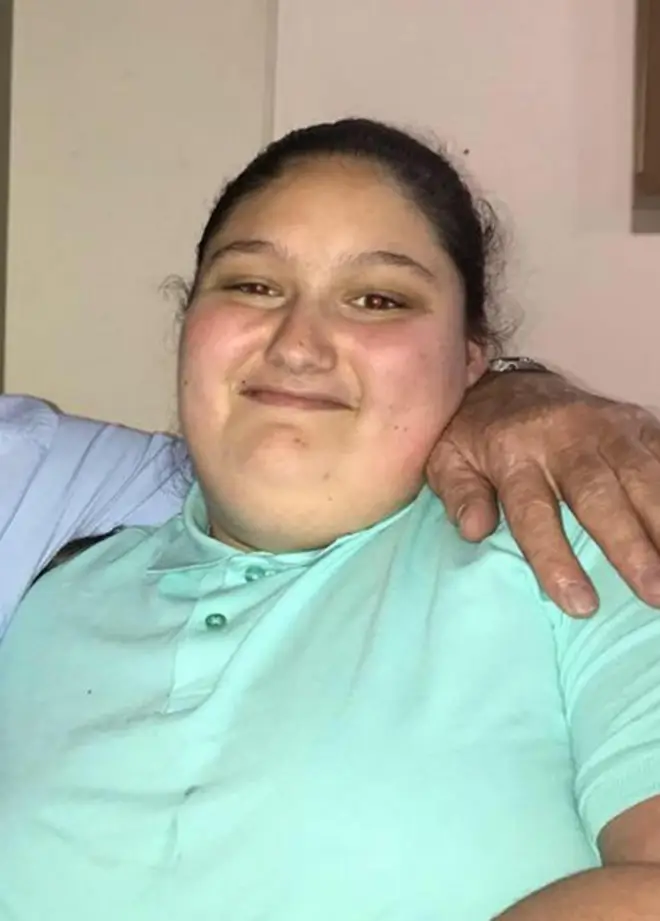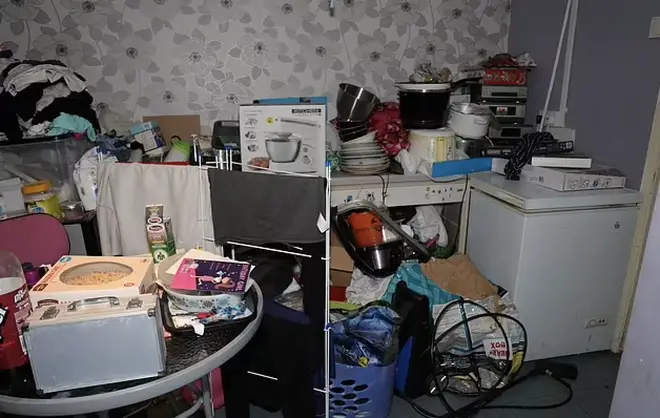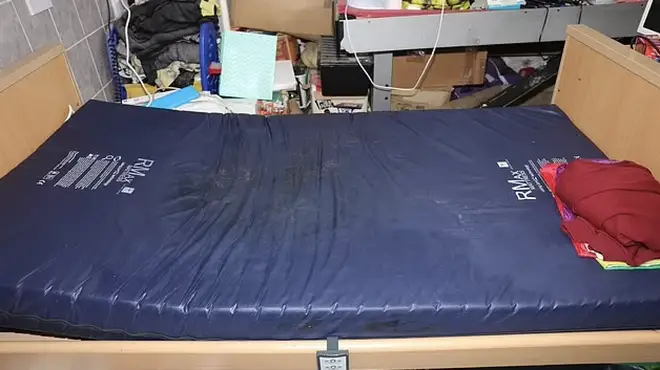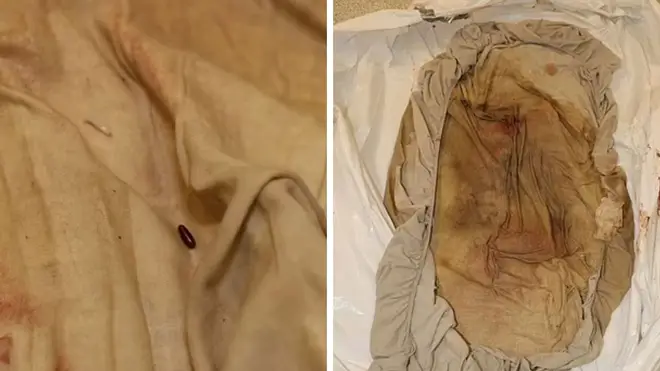
Matthew Wright 7am - 10am
19 May 2023, 13:25 | Updated: 19 May 2023, 13:51

A mother and father who allowed their disabled 16-year-old daughter to die covered in maggots “in conditions unfit for any animal,” have had their jail sentences increased to eight and ten years.
Alun Titford was originally given seven years and six months, and Sarah Lloyd-Jones was first handed six years, both for gross negligence manslaughter, after letting their daughter Kaylea die in "unimaginable squalor".
A court heard on Friday how these original sentences were "unduly lenient" for their horrific crime.
Lord Justice Popplewell, sitting with Mrs Justice McGowan and His Honour Judge Bate, said at the Court of Appeal on Friday that "the circumstances can only be categorised as extreme".
The judge said Kaylea was in "very considerable pain, misery and distress", and in an "utterly degrading" condition as she died in October 2020.
William Emlyn Jones KC, representing the Attorney General's Office (AGO), said: "By virtue of the combination of the duration of the neglect, the nature of the victim's prolonged suffering, the extent of the victim's vulnerability and absolute dependence on her parents for care, and ultimately, the appalling conditions in which she was left to live and ultimately die, this is an offence which falls into the definition of 'extreme'."

Lewis Power KC and David Elias KC, representing the defendants, both argued the original sentences were "well placed".
Lloyd-Jones, watching via video-link, was unmoved as her jail term was increased to eight years, while Titford was not present to hear his sentence rise to 10 years.
Kaylea, who suffered from spina bifida, was found dead at her home in Newtown, Powys, in October 2020 after her parents repeatedly failed to get help even when it was offered, as Titford said he was "lazy" and left care to the mother, while Lloyd-Jones said she was overwhelmed.
Kaylea weighed 22st 13lb at the time of her death and her body was discovered covered in maggots in her bedroom in conditions described as “unfit for any animal.”
Sentencing the two at Swansea Crown Court, Mr Justice Griffiths said her parents failed to control her diet, instead feeding her "the same fattening takeaways everybody else was eating", and they did not help her mobility problems by giving her a wheelchair.
"(Kaylea) would not allow people so much as to push her wheelchair or open a door for her. Everything she could do for herself, she did," the judge said.
"But she died just after her 16th birthday.
"You, Sarah Lloyd-Jones, her mother, and you, Alun Titford, her father, caused her death by shocking and prolonged neglect over lockdown."

Her mobility problems left her stuck in her squalor, he said, unable to get up and help herself despite adaptations in the house, and she was bothered by flies as maggots ate away at her.
He said that her "suffering and degradation she experienced before she died was prolonged and significant", and despite having lost feeling in her lower limbs - where most of her ulcers had developed - "could see and smell her own filth".
Read more: Watch as teen driver smashes into lorry at 100mph after police chase, and avoids jail sentence
The judge said the parents never asked for help, while both complained they had been unable to care for her. Professionals began to question why they would schedule appointments with the family if the parents never turned up.
"Kaylea could see the flies and the maggots. She complained about them. She could see the bottles of urine from her catheter left unemptied and uncollected from the floor. She could see that her wheelchair was out of reach," the judge told the parents.
"She would know it was now too small for her anyway. She could see dirty bedding and the mess in the room, and she knew she had not been properly washed for a long time, even if she could not see her own blackened armpits and had limited or no feeling in parts of her visibly crusty and ulcerated skin.
"For a girl of her age and independent spirit, this was a particularly terrible state to find herself in."
The judge said both parents continue to shift blame - Titford even continuing to blame Lloyd-Jones and Kaylea.
Titford even heard her screaming on the night she died but instead texted her to tell her to stop, the judge said.
Caroline Rees KC, prosecuting, said: "By the time of her death between October 9-10, Kaylea Titford was living in conditions unfit for any animal, let alone for a vulnerable 16-year-old girl who depended on others for her care.
"Kaylea lived and died in squalor and degradation."
She had not returned to school in Newtown since the beginning of the coronavirus pandemic in March 2020, and had not seen a doctor for at least six months.

The teenager was unable to move from her bed and had not used the shower since before the lockdown was imposed.
"Because of the lockdown, Kaylea's exposure to those outside her family was extremely limited," Ms Rees told the court.
"This allowed both defendants to avoid the scrutiny of the outside world."
Prosecutors said maggots were observed on her "filthy" body that were said to have been there while she was still alive.
Ms Rees said that when the teenager was moved from where she had died: "Police officers then observed her bed and saw maggots in various stages of development crawling over the bed."
She told the court: "To summarise, the last months of Kaylea Titford's life must have been horrendous. She was a severely disabled child who needlessly had become bed-bound, trapped in appalling conditions, surrounded by her own filth.
"It was a rancid combination of urine, faeces and secretions from her own body, including her ulcerated limbs.
"It was in that environment that she spent every minute of every day for months."

Emergency service workers who were called to the house said they felt sick from the rotten smell in her room.
Titford, 45, denied manslaughter by gross negligence but was found guilty after a trial last month. Lloyd-Jones, 39, admitted the charge last year.
Lewis Power KC, for Lloyd-Jones, said she had become "gradually overwhelmed" during lockdown. She has low average intellect and a major depressive disorder, he told the court.
"Her coping strategies coupled with lockdown led her to develop major depression and she was no longer able to care for her daughter's needs," he said.
"It escalated to the horrendous situation where she withdrew from her everyday responsibilities and led the catastrophic outcome. She accepts she neglected her duties of looking after her daughter."
But he described her as having been a "kind, diligent and loving mother" for most of Kaylea's life.
She sent messages to Titford begging for help.


"I'm absolutely exhausted, I can't cope working and doing everything... all I've done is cry all day. I need you to help me," she messaged him.
In other messages, they talked about Kaylea soiling herself, saying: "Why do you get mad? It's not my fault."
Titford, a removals workers, had tried to claim Lloyd-Jones was responsible during his trial, and said he was "lazy".
His defence lawyer, David Alias KC, said he took less of a role in caring for her after Kaylea reached puberty.
"This is a family with a man working for a removal company 50 hours a week on average and a woman looking after all the children and working as a carer in the community in the lockdown," he said.
"A care package was needed and it should not have needed to be asked for it. They should have been offered it and were not."
Kaylea had been described as a "funny and chatty" pupil at Newtown High School, but she did not return to the school after lockdown.

Referring to the parents passing the blame, the judge said: "He would go into Kaylea's s room from time to time, as he did on her birthday and when he got back from work on other days. He ignored the smell and the dirt and the flies and the chaos, and the evidence of his own eyes and nose that she was not getting the care she needed.
"There are texts in which Sarah Lloyd-Jones begged for his help - he didn't give any help. His long hours at work are not an excuse. He liked working - he did not like helping - and he was, as he freely accepted, too lazy to help.
"He expressed some scruples about getting involved in the personal care of a daughter who had reached puberty, but his neglect was total and he could and should have done more to help and ask others for help. Instead, when he was not at work, he sat in his bedroom upstairs watching television.
"Equally, I do not accept that Sarah Lloyd-Jones can throw the blame on to her husband. It was too much for her to do on her own, that I do accept, but it was her duty to ask for help and to accept it from the agencies which over the years she sometimes ignored or turned away."